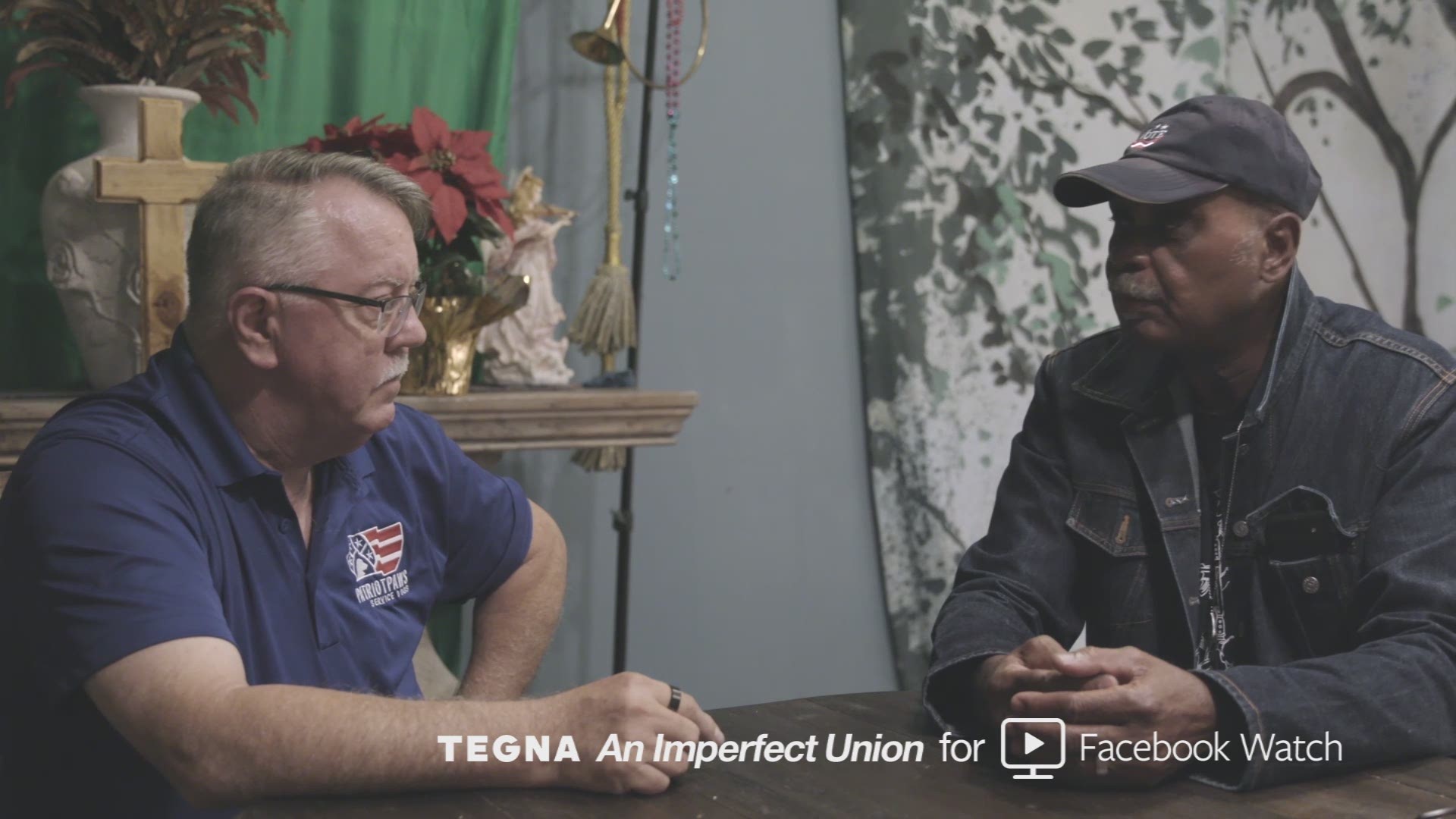DALLAS — An Imperfect Union brings together two people on opposite sides of an issue to work on a project in their community. Watch full episodes on Facebook Watch every week at 8pm ET/5 pm PT.
Kneeling at football games. Since Colin Kaepernick first sat and took a knee as the national anthem played during the 2016 NFL preseason, the protest movement has caused visceral reactions among Americans.
Now, as protests continue into the 2018-2019 season with athletes like Carolina Panthers' Eric Reid and Miami Dolphins' Kenny Stills, supporters and critics of the movement debate the pros and cons.
To talk about kneeling and its impact, “An Imperfect Union” went to Dallas, Texas.
Rev. Peter Johnson
Rev. Peter Johnson, a long-time civil rights leader who worked alongside Dr. Martin Luther King and many others, continues to work towards change in America.
“I’m kind of the last of the Mohicans,” Johnson said. “There are only a handful of us left alive.”
“From the time I was a little boy, I was plenty aware of the injustices that our people faced, and I ought to do something about that,” he said. “Nobody is comfortable with protest. But protest is not supposed to make you comfortable. Protest is supposed to make you uncomfortable. If you want to look at something that’s un-American and anti-Constitutional, don’t look at kneeling, look at voter depression – that is un-American.”
Grant Seabolt
Grant Seabolt, a 28-year retired Marine colonel and a co-host of a conservative radio talk show, spent his life serving this country.
“Just because something is an activity that you have the right to do doesn’t necessarily mean it’s the right thing to do,” he said. “I don’t think it’s the right thing to do, although it may be for the right reasons.”
“They’re taking the knee at sport games,” he added. “It’s not advancing the actual resolution of the issue, it’s actually creating more division.”
The Meeting
The two met to distribute lunch to homeless individuals served by the Dallas International Street Church, a place where Johnson often ministers.
“I’ve always been told by white people, ‘There is a better way to do this. Don’t do this. There is a better way to do it. You’re not helping your cause. Be patient; wait,’” Johnson said. “It is offensive for an Alabama white man to sit and tell me what all to do about the killing of our children.”
“You’ve chosen to be offended,” Seabolt replied. “That’s not my position to offend you. I recognize the issue and I think it should be dealt with. The question the way it’s dealt with – that’s all. If you decided to be offended is because you decided – not because I offended you.”
“I’m offended because you have the audacity to tell me how to get the foot off of my people’s neck. You have the audacity to decide for me, ‘Don’t do it like this, do it like this,’” Johnson said.
“You do anything you need to,” Seabolt said. “It doesn’t mean I have to agree with it.”
To see how their conversation unfolds, watch the full episode of An Imperfect Union.

